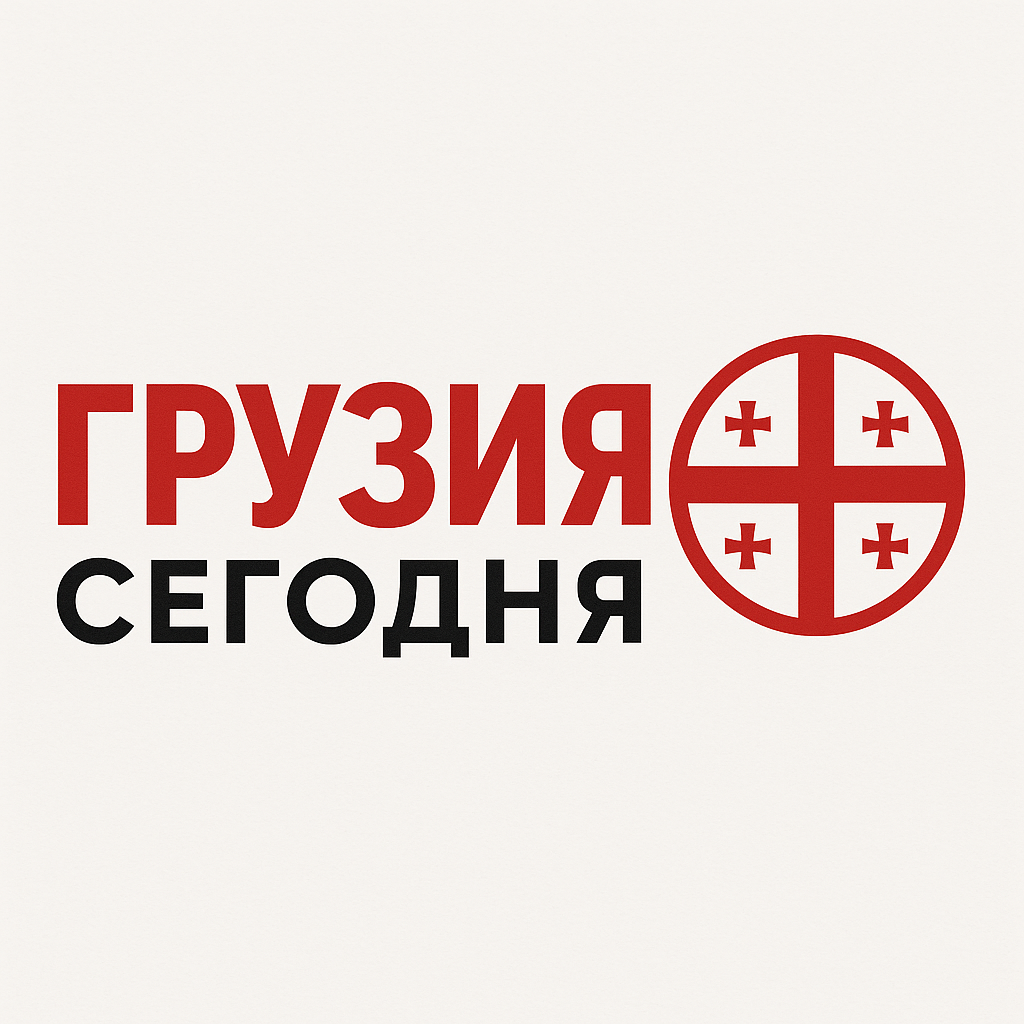Осуждённый за наркопреступление Артём Грибуль начал голодовку. Об этом «IPN» сообщила правозащитница Дарья Самодурова. Как заявила правозащитница,...
Мэр Батуми Гиорги Цинцадзе вместе с председателем правительства Аджарии Сулханом Тамазашвили и представителями местных властей принял...
Прокуратура Грузии предъявила бывшему заместителю министра регионального развития и инфраструктуры Кобе Габуния обвинение по факту злоупотребления...
Ваша реклама здесь
728x90
Осуждённый за наркопреступление Артём Грибуль начал голодовку. Об этом «IPN» сообщила правозащитница Дарья Самодурова. Как заявила правозащитница,...
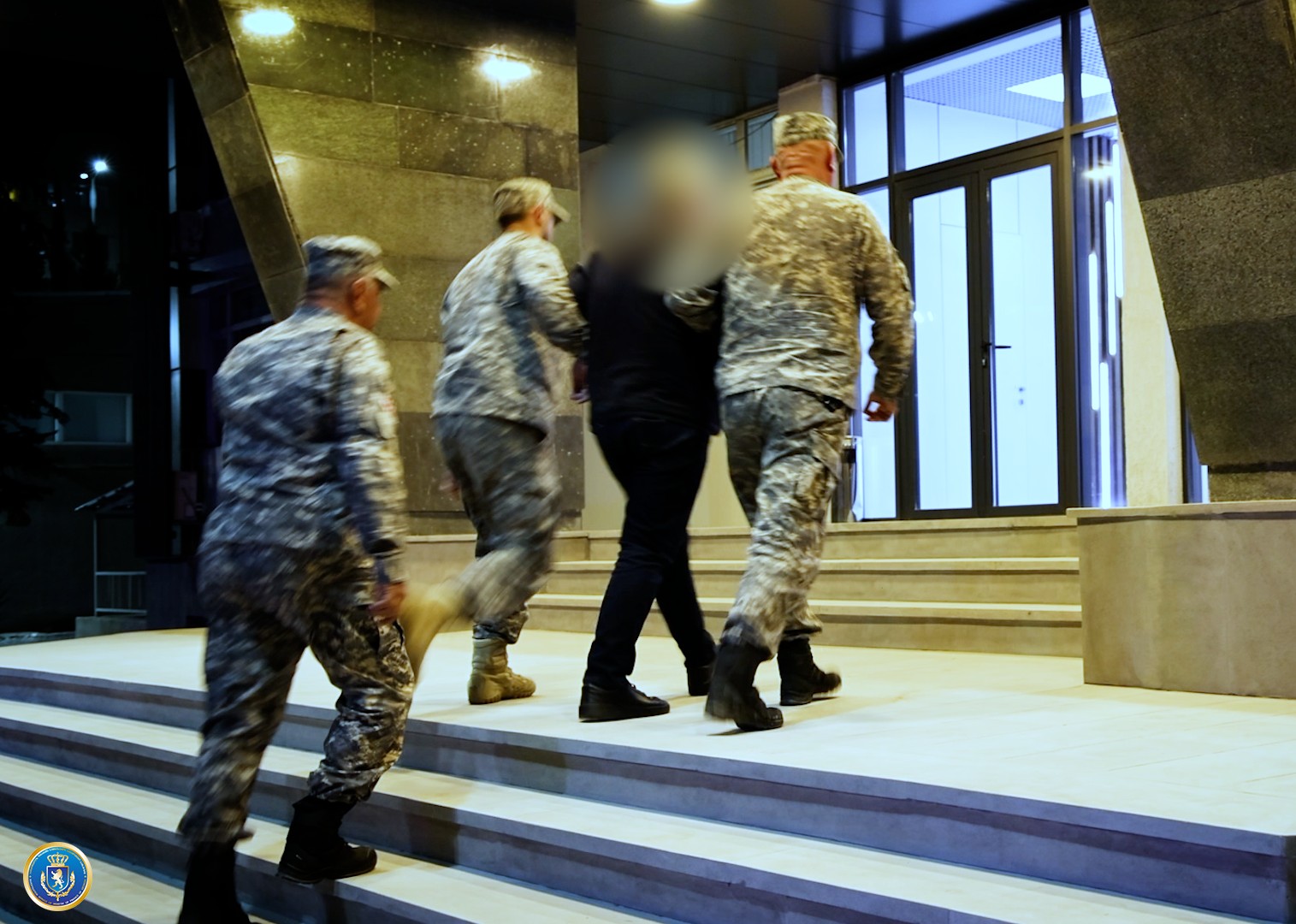
Georgian authorities detained former deputy regional development and infrastructure minister Koba Gabunia on charges of abuse of office and searched 20 locations, including the home of former minister Irakli Karseladze. At an October 30 briefing, Ia Akhalaia, deputy head of the Finance Ministry’s Investigation Service, said Koba Gabunia, former deputy to Irakli Karseladze, instructed subordinates at the ministry-coordinated Municipal Development Fund to approve more than GEL 11 million (approximately USD 4.13 million) in advance payments to Lagi Capital LLC for kindergarten rehabilitation in 2023-24. She said Gabunia acted to “gain an advantage,” and the Lagi Capital LLC management “fraudulently misappropriated” more than GEL 9 million (about USD 3.45 million) from the advances. Akhalaia noted the Fund granted the advances even though the requests were “unsubstantiated and only partially secured,” and despite the company’s failure in 2023 to spend an earlier advance payment for its “intended purpose.” Koba Gabunia, who oversaw the Municipal Development Fund, served as deputy to then–Regional Development and Infrastructure Minister Irakli Karseladze from 2021 to 2025. Karseladze served as minister from 2021 to 2025 and resigned on April 24. Akhalaia also noted the recent arrests of former Municipal Development Fund executive director Davit Tabidze and a program and project manager at the Fund. She stressed that they “fully cooperated” with investigators and were granted bail by a court. She added that executives of Lagi Capital LLC were also arrested in the case. The investigation involves multiple offenses, including abuse of office, fraud, and money laundering. If convicted, the suspects face nine to twelve years in prison. “We continue intensive operational and investigative activities with respect to this and similar categories of cases together with the Prosecutor’s Office and the State Security Service of Georgia, to expose other individuals involved in the corruption crimes, bringing criminal liability and maximum prevention of corruption,” Akhalaia added. According to the media reports, Lagi Capital LLC was owned until 2023 by Aleksandre Amisulashvili, brother-in-law of Georgian Dream MP Irakli Zarkua, and the company participated in state tenders. Zarkua dismissed the allegations as “another shameful fake news.” The latest detention comes amid Georgian Dream’s declared “uncompromising” anti-corruption drive and a rise in arrests on similar charges of former officials and associates linked to the ruling party. In a recent case, authorities targeted several former high-level officials, including ex–PM Irakli Garibashvili, former State Security Service chief Grigol Liluashvili, and former Prosecutor General Otar Partskhaladze. Authorities said ex-PM Garibashvili “fully cooperated” with the investigation and “admitted to receiving illicit income over the years,” as he was charged with serious money laundering before being released on bail. Two associates of Liluashvili were also arrested. This post is also available in: ქართული

Russian authorities charged Giorgi Partsvania, a 35-year-old Georgian national fighting for Ukraine, placed him on a wanted list, and ordered his pre-trial detention in absentia, the Moscow prosecutor’s office said on October 28. Partsvania faces multiple counts under Russia’s Criminal Code, including participating as a mercenary in a war, committing a terrorist act, illegally crossing the border, and, acting as part of an organized group, transporting, carrying and storing firearms and ammunition, illegally carrying explosive devices, and smuggling firearms and ammunition. The prosecutors said that between 2014 and 2017, Partsvania entered Ukraine and joined a paramilitary unit fighting the security forces of the self-proclaimed Donetsk and Luhansk people’s republics. He allegedly returned to Ukraine in late February 2022, again joined a paramilitary unit, and took part in “hostilities” against the Russian military until September 2025. The prosecutors further claimed that in August 2024, Partsvania, along with other Ukrainian servicemen, illegally crossed Russia’s state border into the Belgorod region, attacked the village of Poroz, entered private homes without authorization, and held two civilians hostage. This post is also available in: ქართული
Ваша реклама здесь
728x90
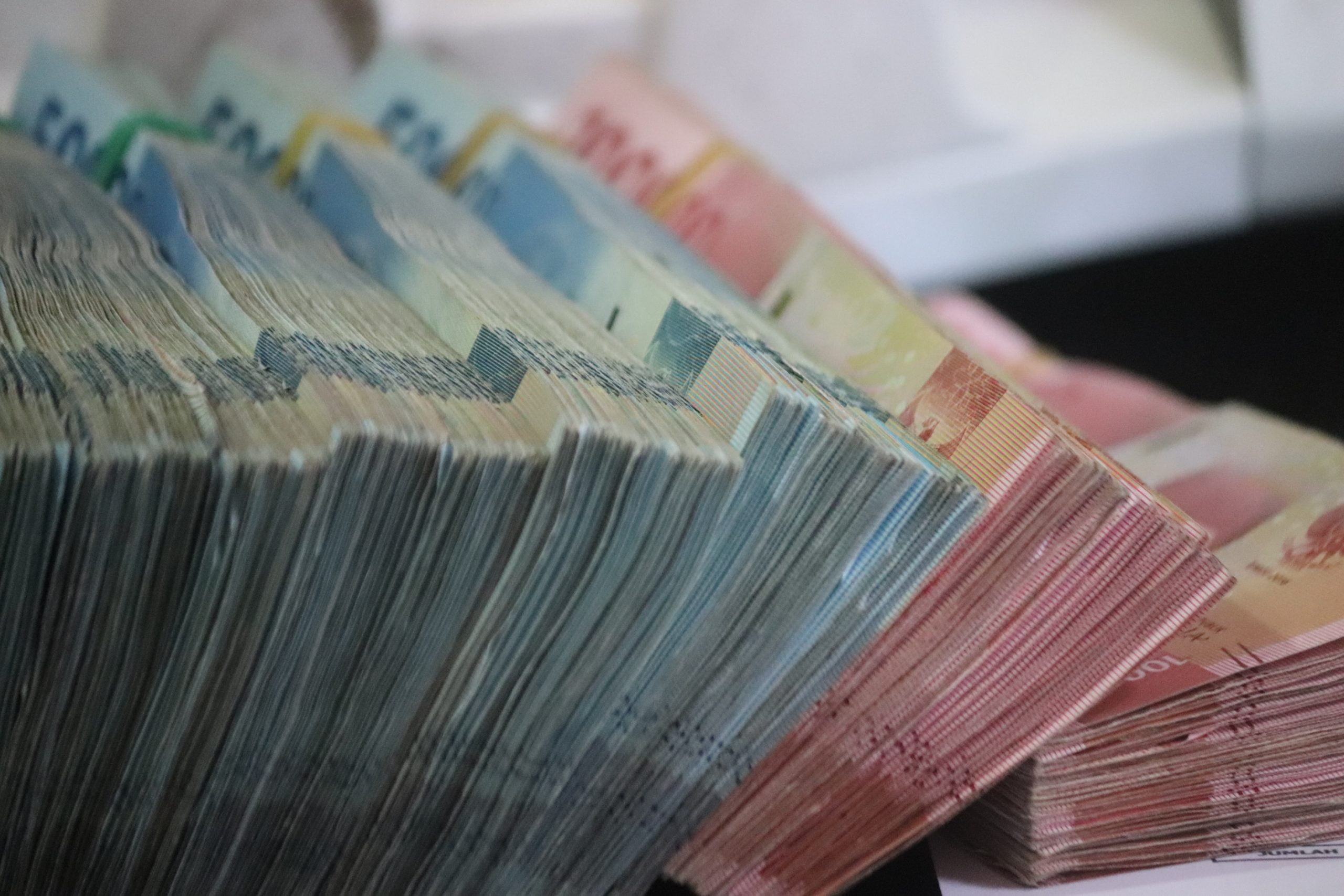
Georgia’s real gross domestic product (GDP) increased by 6.4% in September 2025 compared to the same month of the previous year, according to data released by the National Statistics Office (Geostat) on October 31. The growth was mainly driven by manufacturing, transportation and storage, information and communication, and professional, scientific, and technical activities. In contrast, the construction and energy sectors recorded declines. The European Bank for Reconstruction and Development (EBRD) forecasts Georgia’s GDP to expand by 7% in 2025, before moderating to 5% in 2026. Similarly, the Asian Development Bank (ADB) also revised its 2025 growth forecast upward to 7%, while maintaining its 2026 projection at 5%. This post is also available in: ქართული
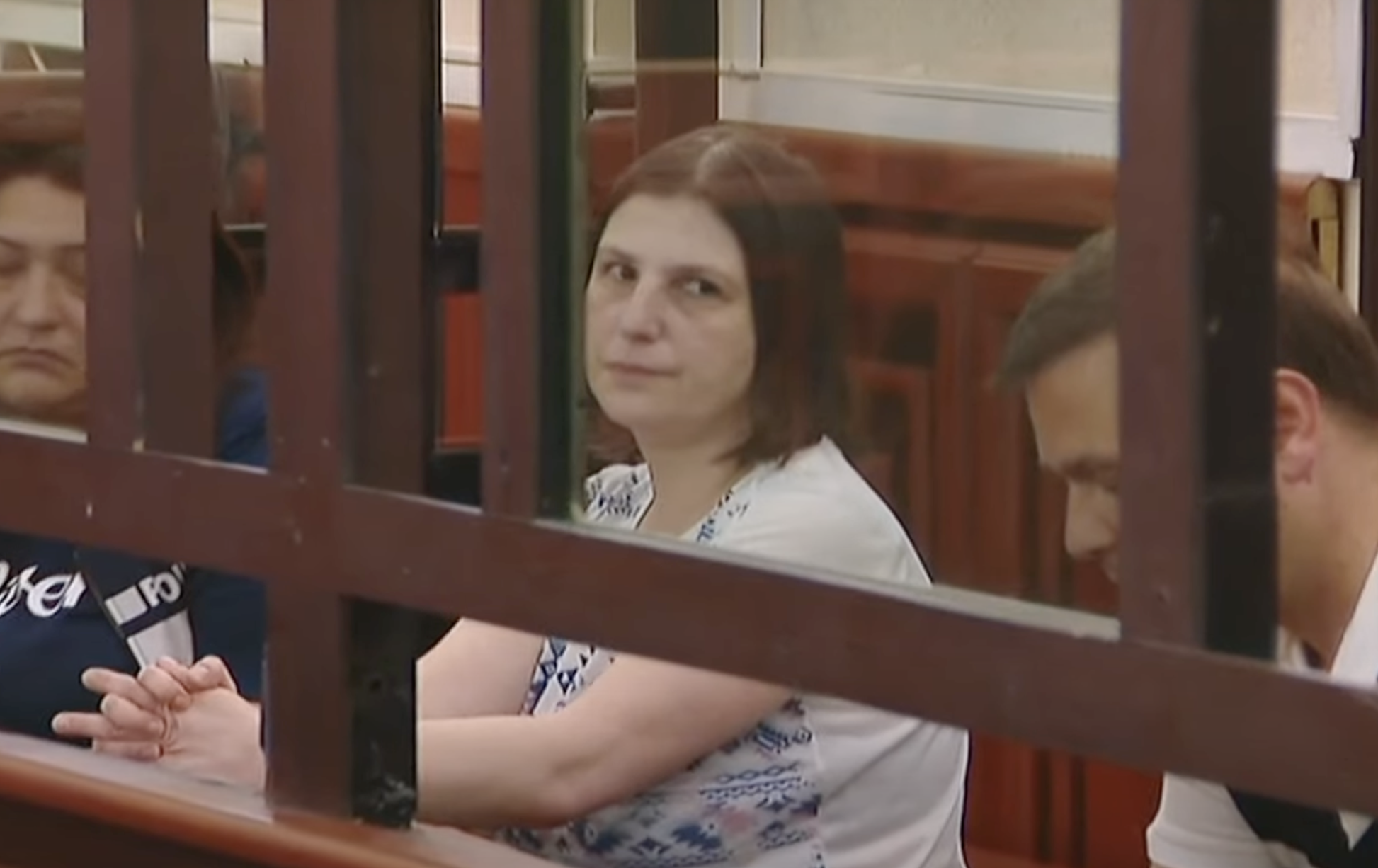
Detained teacher and activist Nino Datashvili was released on GEL 5,000 (USD 1,800) bail, shortly after the Tbilisi City Court judge Tamar Mchedlishvili accepted prosecutors’ motion on October 29 that cited her deteriorating health, as she requires two spinal surgeries and follow-up treatment. The bail release of Datashvili, arrested in June on charges of assaulting an officer, marks a rare instance of courts agreeing to replace pre-trial detention with milder restraint measures in protest-related cases. The decision followed mounting concerns from human rights groups and Datashvili’s family, who pointed to her long-standing health problems that had worsened since her arrest, leading to mobility problems and intensifying pain. “Being released today is my salvation, thank you. I want to thank the prison administration, the doctors, and my treating physician – they did everything to improve my condition, but nothing worked, and now I need two surgeries,” Datashvili said during the court session, which she attended online due to her health condition preventing her from appearing in person. Datashvili was arrested on June 20 on charges of assaulting a public servant, with authorities alleging she struck a bailiff on June 9 at Tbilisi City Court after being barred from entering an ongoing session due to a lack of space. Video footage from the incident shows her swinging her hands at bailiffs while being forcibly removed from the building by approximately five officers, though the force of contact remains unclear. The local human rights organization Partnership for Human Rights (PHR), which represents Datashvili in court, said she has been suffering severe spinal and limb pain for two months following her June 21 arrest. “The N5 penitentiary institution provides medical service to Nino Datashvili; however, her health has not improved in prison conditions,” PHR said on October 28. “On the contrary, her condition has become critically severe in the recent period, which confirms that the medical assistance provided is not effective.” According to PHR, Datashvili underwent medical examinations at Vivamedi Clinic on August 25, which diagnosed her with spinal osteochondrosis and recommended medication and physiotherapy. The clinic advised that if treatment proved ineffective, she should be transferred for surgery. A follow-up examination at the clinic on October 24 confirmed the need for two spinal operations, prioritizing surgery on her cervical vertebrae, the group noted. Datashvili’s husband, Godi Pruidze, spoke on October 28 about her deteriorating condition, citing loss of mobility requiring wheelchair use, persistent numbness on her right side for over a month, and severe neck pain. He also pointed to poor prison conditions, including inadequate medical care, substandard bedding, and unsanitary facilities. “She urgently needs rehabilitation to immediately stop the process of bone and joint regression that began in prison, so that […] Nino Datashvili can be saved from becoming permanently disabled and from possible death!” Pruidze wrote on social media. Datashvili’s case has drawn further scrutiny since early August, when the court granted the prosecution’s request to subject her to forced psychiatric examination for 20 days, citing 2019 medical records that mentioned “emotional lability” as a symptom accompanying a painful spinal condition. The decision at the time sparked outcry from psychologists, lawyers, social workers, and educators, who condemned what they described as abuse of psychiatry against government critics and reminiscent of Soviet-era repressive practices. Later in August, Datashvili and her lawyers said that experts were secretly brought into her prison cell to conduct a psychiatric interview without prior notice. The prosecutor later confirmed the evaluation, saying it had been carried out “in the defendant’s best interests” and was now complete, with no further examinations planned. On October 27, comedian Onise Okriashvili staged a symbolic protest outside the Tbilisi Opera building where the Ministry of Education was hosting the National Teachers’ Prize ceremony, holding a banner reading “Freedom for teacher Nino Datashvili.” Datashvili’s release comes amid growing concerns over the health of individuals arrested in connection with the ongoing anti-government protests. Among them is journalist Mzia Amaghlobeli, who is serving two years in jail, who is suffering rapid vision loss, and Ia Darakhvelidze, a protester released on bail after the court took her epilepsy diagnosis into account. This post is also available in: ქართული
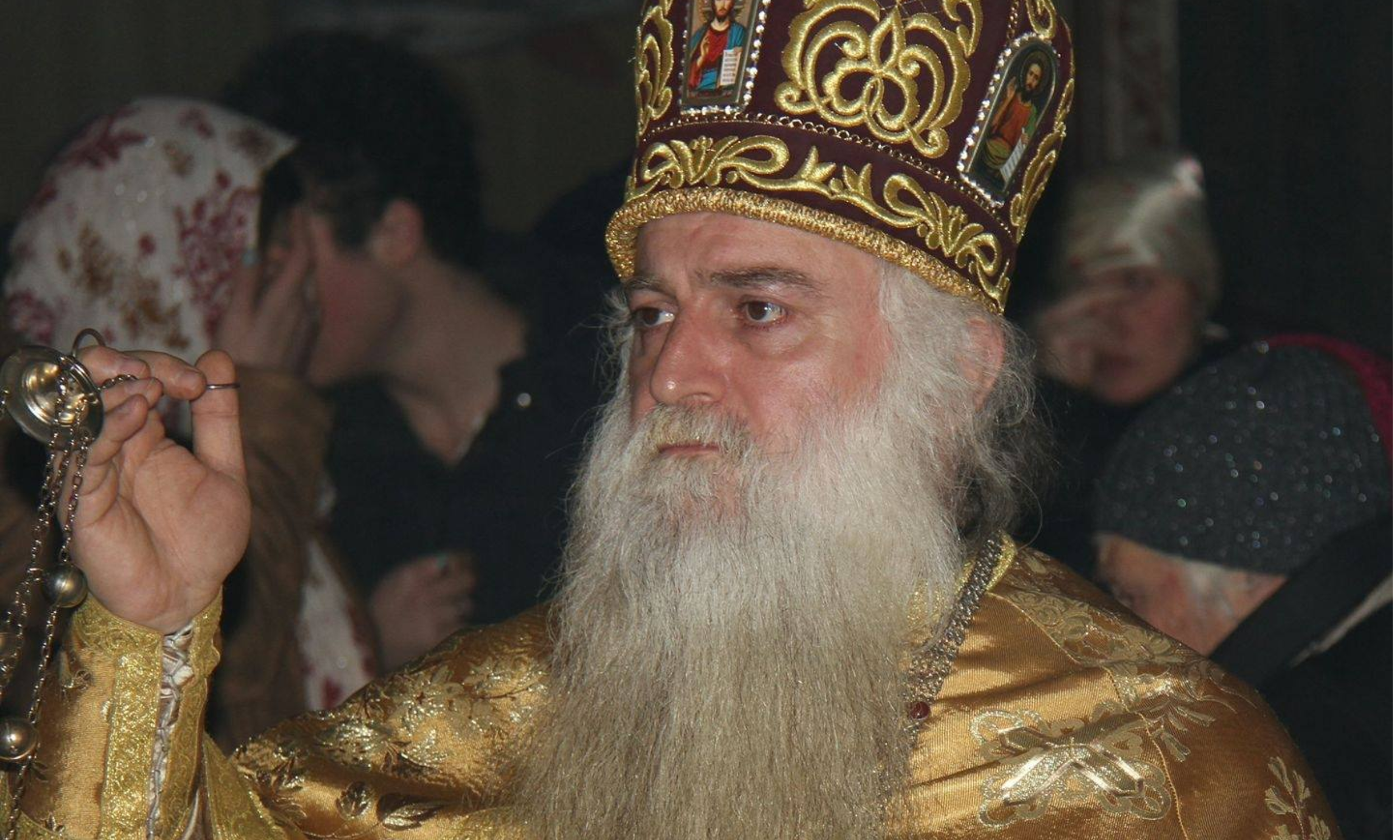
Archimandrite Dorote Kurashvili, a cleric known for his open criticism of both the ruling Georgian Dream party and the Georgian Orthodox Church clergy, was removed from his position as head priest by Patriarch Ilia II’s October 29 order, which followed the conclusions of the Mtskheta-Tbilisi diocesan commission that cited “disciplinary violations.” The Order No. 84, signed by the Patriarch, mandates Kurashvili’s removal from his position as a head priest of Lower Betlemi Savior’s Nativity Church and his assignment as a clergyman of Tbilisi’s Holy Trinity Cathedral. Shortly before the decision, a diocesan commission composed of senior clergy – including Patriarchal Locum Tenens Shio Mujiri, Patriarchate Spokesperson Andria Jagmaidze, and the Patriarch’s Secretary Mikael Botkoveli – issued a conclusion citing the archimandrite’s repeated failure to appear before the commission, as well as “violations of a disciplinary and moral nature, namely defamatory and other actions inappropriate for a priest.” “Today, I am being judged by the Russian Church and Bidzina Ivanishvili. This is their order,” Kurashvili told the media while the disciplinary proceedings were still ongoing, referring to the Georgian Dream’s billionaire founder. Kurashvili has frequently denounced Georgian Dream government policies and what he called “systemic injustice” and repressive measures targeting citizens, including in his sermons and media appearances. The cleric has repeatedly backed ongoing pro-EU, anti-government protests, repeatedly attending daily demonstrations in Tbilisi. He has also accused the church of acting under political pressure. The archimandrite was first summoned on October 16 but did not attend and received a formal warning. When called again on October 29, he refused to appear unless the session was open to the media. The commission turned down the request, calling such demand “unprecedented and unacceptable.” The archimandrite has come under public scrutiny for openly criticizing both the authorities and the clergy, while himself becoming the target of growing criticism from the Church and pro-government media. On September 27, the opposition-leaning TV Pirveli released what it said was a leaked audio recording of a patriarchate meeting attended by Kurashvili, Botkoveli, Jagmaidze, and others. The recording allegedly captures the clergy criticizing Kurashvili for “morally undermining” the diocese and other priests, claiming he was “setting a measure” by publicly urging fellow clergy to speak out on the country’s political situation. It also reportedly shows senior clergymen expressing dissatisfaction with the archimandrite’s use of his position to voice political opinions. Botkoveli is allegedly heard questioning whether this aligns “with our duty,” while Jagmaidze chooses to advise against “preaching morals” to other clerics for not similarly speaking up. In a statement released in October, following the October 16 diocesan commission meeting where Kurashvili did not appear, the commission accused the archimandrite of spreading “slander by claiming that during a meeting held at the Patriarchate on September 16, he had been questioned over his political views.” In response, the archimandrite told journalists: “They are the ones slandering me. The recording was leaked, they deny it, and now they accuse me instead. This is a catastrophe.” As controversy intensified, GD critics and opposition-minded figures came to openly support the archimandrite, including Salome Zurabishvili, Georgia’s fifth president. “You can’t escape responsibility, those of you who hide behind the Patriarch’s name and want to put the weight of your decision on him,” Zurabishvili wrote on social media following the October 29 decision, expressing “respect and solidarity” towards Dorote Kurashvili. This post is also available in: ქართული
Ваша реклама здесь
728x90
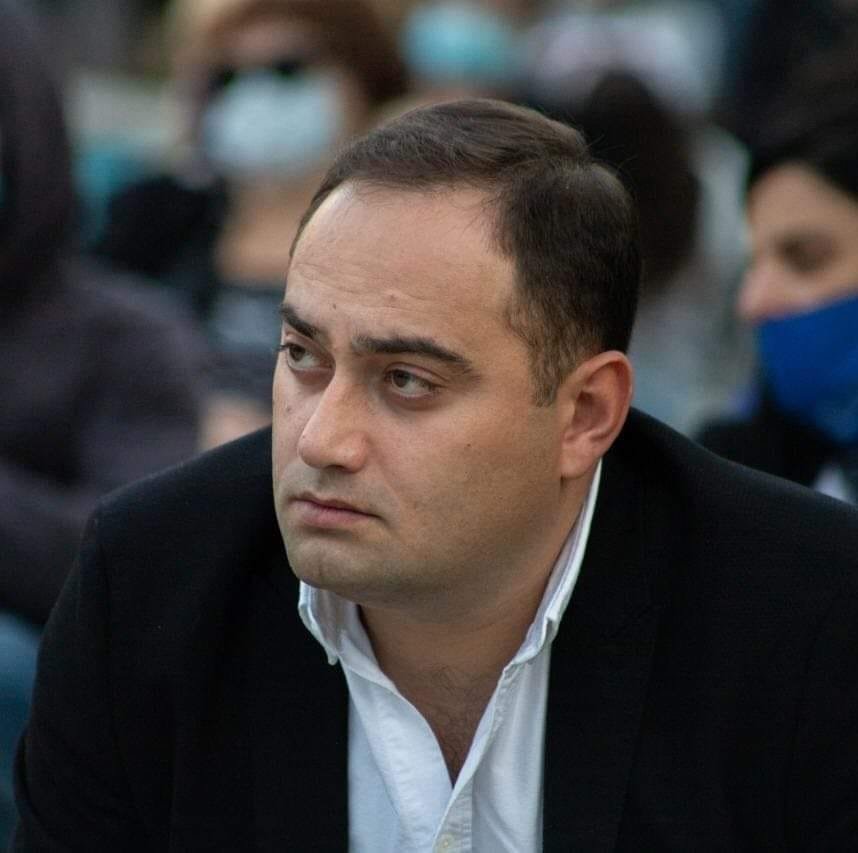
The disputed Parliament voted on October 29 to terminate the mandate of Georgian Dream MP Davit Kodua following his election as Mayor of Zugdidi. He was replaced by Zurab Kadagidze, a member of the People’s Power party, which ran on a joint list with Georgian Dream. Both decisions were adopted without opposition. Kodua, 40, won the mayoral race in Zugididi, a western Georgian town, in the partially boycotted October 4 local elections, securing 88.8% of the vote per official results. Under Parliament’s Rules of Procedure, the mayoral position is incompatible with holding a parliamentary mandate. Kadagidze, 38, had served as the Tbilisi City Council (Sakrebulo) member from the Georgian Dream party since 2016. He later joined People’s Power, Georgian Dream’s offshoot party known for its hardline, anti-Western, and conspiracy-laden rhetoric. A psychologist by training, Kadagidze frequently appears as a pundit on the pro-government POS TV, where he often characterizes opposition members as “radicals.” This post is also available in: ქართული
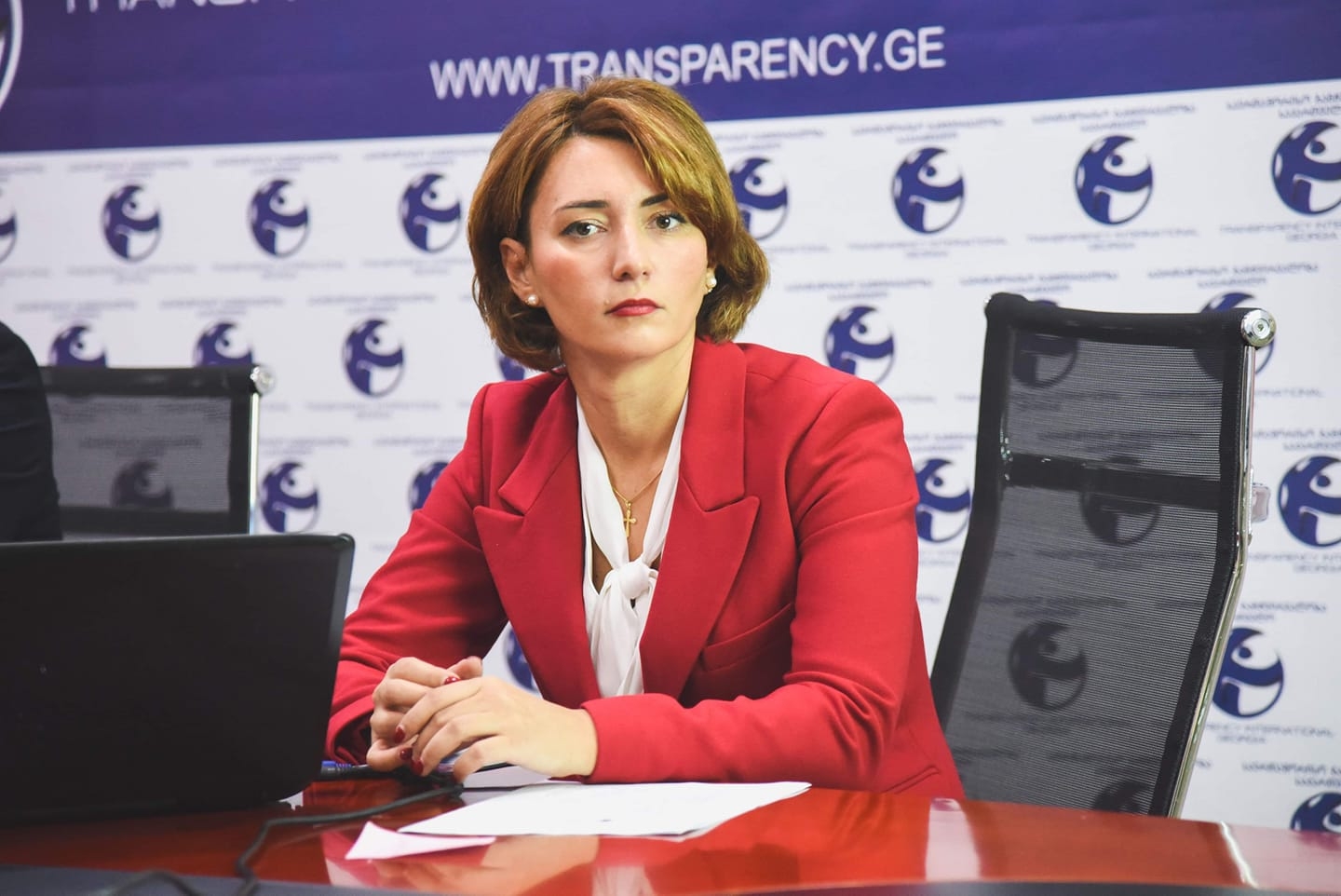
Transparency International (TI) – Georgia, the key local corruption watchdog, says “elite corruption was and remains much more widespread” than the ruling Georgian Dream party “admits” by targeting several former officials and associates. “For years, when Transparency International Georgia and investigative media sounded the alarm about the problem of elite corruption, Georgian Dream denied it and called it a lie,” Eka Gigauri, Director of TI-Georgia, said at an October 30 briefing. “However, recently they had to admit to it.” Georgian Dream has recently gone after former members and associates on charges of serious financial crimes amid its proclaimed “uncompromising” fight against corruption. Most recently, former PM Irakli Garibashvili was indicted on serious money-laundering charges after authorities said he admitted to receiving illicit income for years. He was granted bail by the court. “For years, investigative agencies, prosecutors, judges, employees of the State Security Service, and the Anti-Corruption Bureau have been involved in covering up corruption,” Gigauri added, stressing that “in reality, elite corruption was massive.” Gigauri said that over the past five years, TI-Georgia has documented 250 cases of elite corruption involving 221 high-ranking officials, including 38 ministers or deputy ministers, 40 MPs, 17 judges, and 67 municipal officials. The watchdog summarized seven major corruption schemes in its report. According to the organization, Georgian Dream officials have received about GEL 5 billion (USD 1.8 billion) through corrupt public procurement practices over the past decade. Of this, GEL 3.3 billion (USD 1.2 billion) originated from regional budgets, including GEL 1.1 billion (USD 400 million) in 2024, after Prime Minister Irakli Kobakhidze took office. Among the largest cases, TI-Georgia highlighted GEL 650 million (USD 238 million) in state contracts received by businessman Otar Tateshvili, reportedly close to Bidzina Ivanishvili, after selling land to him in the southern Georgian town of Abastumani. The watchdog also noted that GEL 390 million (USD 143 million) was received by the company Serpentine, allegedly owned by relatives of Irakli Garibashvili, through tenders between 2013 and 2025. TI-Georgia also detailed schemes involving state subsidies and agricultural and business support programs, through which ruling party donors allegedly received GEL 71 million (USD 26 million) and later returned GEL 7.7 million (USD 2.8 million) to Georgian Dream in the form of political donations. The organization further reported that companies linked to Georgian Dream donors received over GEL 1 billion (USD 367 million) in public procurements during the 2020–2024 election period. Other schemes, according to the watchdog, include the distribution of business licenses and permits to influential individuals, such as 29 small and medium hydropower plant construction permits granted to Ivanishvili’s alleged relative Koka Kokolashvili, and similar permits obtained by family members of Environment Minister Davit Songulashvili and other ruling party figures. The watchdog also pointed to the privatization of state property and lease agreements, noting that from 2013 to 2020, state property worth GEL 13 million (USD 4.7 million) was sold to individuals who later donated GEL 2 million (USD 0.7 million) to the ruling party. TI-Georgia argued that over 300 government decrees adopted between 2021 and 2023, transferring state property directly without competition – often for a symbolic GEL 1 – remain inaccessible to the public. The organization further estimated that the state budget potentially lost up to USD 100 million following the adoption of the so-called “offshore law” in spring 2024, which made it easier to bring offshore assets into the country tax-free. The organization said the law allowed Bidzina Ivanishvili to “import his collection of expensive art and other assets into the country without paying any taxes.” The group also highlighted that high-ranking officials declared GEL 34 million (USD 12.4 million) in 2024-2025 as gifts received from family members. “It is likely that in this way some officials are trying to disguise their illegal income, which the Georgian Dream Prosecutor’s Office itself confirmed in the case of Irakli Garibashvili,” TI-Georgia argued. The watchdog said it had repeatedly appealed to the Anti-Corruption Agency, the Prosecutor’s Office, and, more recently, the Anti-Corruption Bureau, submitting materials on 65 corruption cases, but “none of these agencies reacted to any of them.” This post is also available in: ქართული
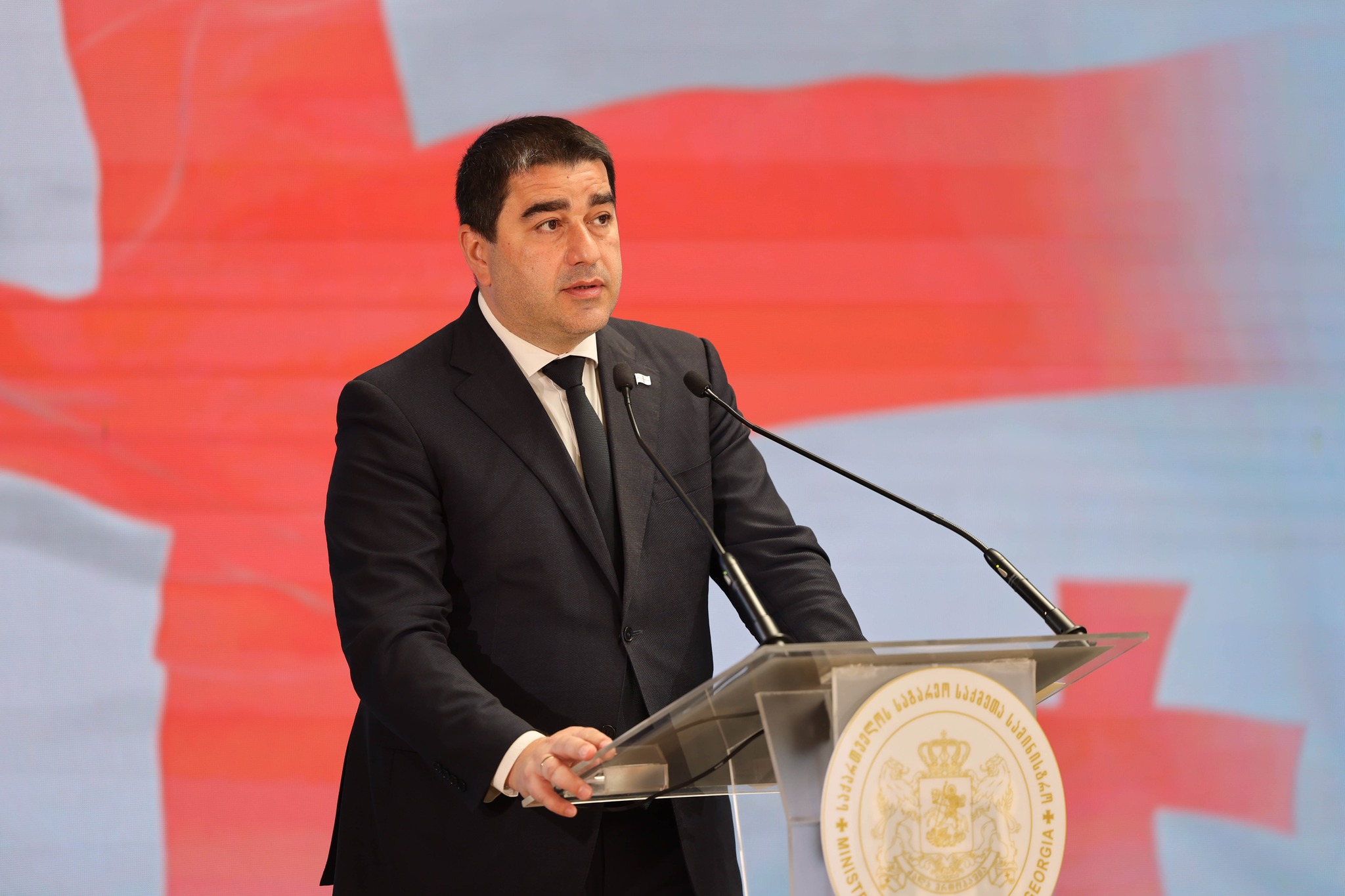
The ruling Georgian Dream party said it is appealing to the country’s Constitutional Court to ban three key opposition forces – the United National Movement, Ahali/Coalition for Change, and Strong Georgia/Lelo – while warning that other smaller groups “closely related” to them, including Droa, Girchi – More Freedom, Strategy Aghmashenebeli, European Georgia, Federalists, and Republicans, could face similar action. According to Parliament Speaker Shalva Papuashvili, who presented the appeal during an October 28 briefing, the move will not affect “associated individuals” of the parties deemed unconstitutional, despite recent legislative amendments allowing such actions. The appeal also spares ex-PM Giorgi Gakharia’s opposition For Georgia party, whose members today took their seats in the disputed parliament after a yearlong boycott. “Along with other violations, the evidence shows that respective political parties have, in a practically constant manner, denied both the domestic political and foreign policy legitimacy of the current Georgian government and ruling political party, and thus its constitutionality,” Papuashvili said. “In doing so, these parties acknowledge that between themselves and the ruling party, one of the parties must be declared unconstitutional.” In the legal reasoning, Papuashvili cited, among others, human rights records under UNM, the previous administration’s actions related to the 2008 August war, the opposition’s boycott of previous elections, as well as their alleged “support” of “foreign force” in undermining Georgian independence. The Constitutional Court, widely seen as loyal to Georgian Dream, has nine months to deliberate on the appeal and decide whether to ban the opposition forces. Judge Irine Imerlishvili recently resigned as the appeal was being prepared, later explaining her decision by citing a job offer in the private sector. GD-elected President Mikheil Kavelashvili has already appointed Giorgi Modebadze as a new judge to the Court. The appeal is based on a voluminous report by the disputed Parliament’s temporary investigative commission, chaired by Georgian Dream veteran Tea Tsulukiani, which examined alleged crimes committed by former officials. The appeal invokes Article 23 of the Georgian Constitution, which deems inadmissible the establishment and activity of a political party “that aims to overthrow or forcibly change the constitutional order of Georgia, infringe on the independence or violate the territorial integrity of the country, or that propagates war or violence or incites national, ethnic, provincial, religious or social strife.” In its legal reasoning, Georgian Dream cited, among others, opposition’s attempts “to overthrow or forcibly change the constitutional order of Georgia,” including through alleged mass human rights abuses under UNM rule as well as moves by opposition parties in 2016-2024 to contest the results of several elections, as well as “six direct attempts” at such in 2019-2024. GD also alleged instances of “infringing on the independence or violating the territorial integrity of the country,” including “events associated with the August 2008 war,” during which, it claimed, “Georgia’s then-government prepared the ground for the occupation forces to invade the Tskhinvali region.” Papuashvili cited, among others, the 2004 “armed confrontation directed at Tskhinvali” by Georgia’s then-government, former President Mikheil Saakashvili’s 2006 decree renaming the Kodori Gorge as “Upper Abkhazia,” and the “alternative unconstitutional elections” held in November 2006 in the Tskhinvali region, which he claimed “gave indirect legitimacy to the separatist elections […] and amounted to an open and gross betrayal of Georgia’s state interests.” He further alleged that in 2007, “Georgia’s then-government created a temporary administrative-territorial unit on the territory of the former South Ossetian Autonomous Oblast and legally restored the borders of the South Ossetian Autonomous Oblast that had been abolished in 1990.” Papuashvili claimed that all these actions culminated in the August 2008 war, after which Georgia’s then-government supported the PACE resolution of October 2, 2008, which, he said, “acknowledged its own actions in escalating to a new stage of open and full-scale military operations, while describing Russia’s military intervention as a ‘counter-attack.’” The ruling party argued that similar attempts continued “since 2012,” including after Russia’s full-scale invasion of Ukraine in 2022, when opposition parties, according to GD, sought to “escalate the conflict between Georgia and the Russian Federation to the maximum extent.” “Unconstitutional political parties to this day are trying to escalate the situation between Georgia and Russia in the same form and degree as the [United] National Movement was doing this before the 2008 war,” Papuashvili claimed. According to Papuashvili, since 2012, opposition parties have also supported a “foreign force” in “infringing on Georgia’s independence” by seeking to “punish” the Georgian state and government from abroad, to fuel discontent among citizens, to incite them “to confront their legally elected government,” and to use these processes “as a mechanism of sabotage.” He listed several “harmful actions,” including the mentioned parties’ attempts to damage Georgia’s visa-free regime with the EU, hinder the country’s progress toward EU membership, and conduct “systematic informational attacks from abroad, attempts to impose sanctions, and facilitating this” against the Georgian state and government. The ruling party is not, at this stage, asking the Constitutional Court to ban the political activities of specific individuals, whether non-partisan or affiliated with the targeted parties. Papuashvili explained that “today, the legislation defines the institution of a successor party, which provides broader opportunities to prevent future unconstitutional political activities by members of banned parties.” This post is also available in: ქართული
Ваша реклама здесь
728x90
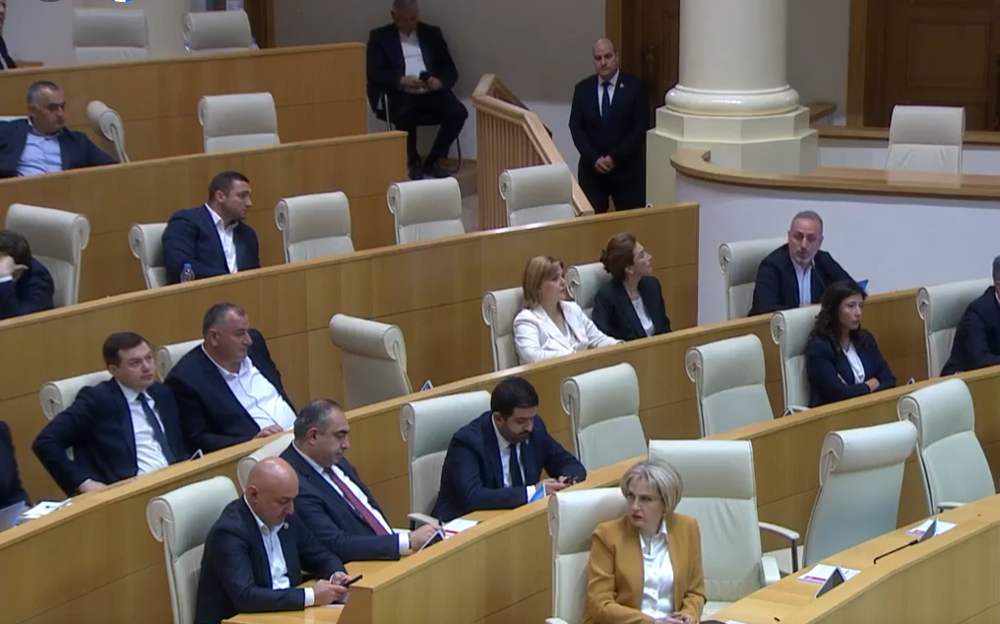
Eleven members of former and exiled Prime Minister Giorgi Gakharia’s opposition For Georgia party took their seats in Georgia’s disputed Parliament on October 28, ending a yearlong boycott of the legislature dominated by ruling Georgian Dream MPs and rejected by other opposition groups after the contested October 26, 2024, general elections. Party member Giorgi Sharashidze announced the decision to end the parliamentary boycott on October 20, saying the move aims to “fight for the survival of free thought” and to “bring another truth in this country to light.” This followed the Georgian Dream MPs’ September move to approve mandates for twelve new For Georgia MPs, two months after the mandates of the party’s original twelve candidates were terminated due to their prolonged absences amid the opposition’s boycott. Other opposition groups had earlier renounced their mandates. For Georgia’s eleven MPs who entered the disputed parliament are Gela Abuladze, Jemal Ananidze, Ketevan Bakaradze, Malkhaz Toria, Shalva Kereselidze, Salome Kobaladze, Giga Parulava, Vika Pilpani, Giorgi Sharashidze, Tamar Khvedeliani, and Sopio Khorguani. One more member, Rusudan Tevzadze, announced days earlier her decision to give up her seat and leave the party altogether, citing “extremely difficult domestic and foreign challenges” and calling it a “difficult but morally correct decision.” Several members had already quit in September after Gakharia hinted that the boycott had been a “mistake.” “It is welcoming that one political group, one party, has recognized the will of the people, acknowledged democracy, and begun to exercise its parliamentary mandates,” Parliament Speaker Shalva Papuashvili said at the opening of today’s plenary session, where For Georgia MPs were present. “Unfortunately, some [opposition] parties have burned their bridges and […] deprived both themselves and, above all, their voters of the opportunity for their voices to be heard in the Parliament of Georgia,” Papuashvili added. In his first address to Parliament, Giorgi Sharashidze, a key member of For Georgia, said the party entered the legislature “out of respect for the Georgian people and in recognition of the reality that we failed to offer them a better alternative.” “We are now ready to accept this challenge and bring back the people’s voice and differing opinions to Parliament, which, above all, belongs solely to the Georgian people,” he added. “The truth is bitter,” Sharashidze said. “You will have to hear this truth from us in Parliament. You will have to accept that from today, this will no longer be your party’s office, and you will first and foremost have to hear differing opinions and the voice of the Georgian people from us.” For Georgia has been the only opposition group among the four that cleared the mandatory 5% threshold in the 2024 parliamentary elections, not to formally renounce its seats, leaving open the possibility of eventually taking them up. The party leader, Giorgi Gakharia, remains in exile due to two ongoing investigations into his 2019 tenure as interior minister. Unlike other opposition groups, For Georgia also participated in the October 4 local elections together with another major opposition alliance, Lelo/Strong Georgia, which remains in a parliamentary boycott after Georgian Dream terminated its lawmakers’ mandates. The disputed Parliament’s Speaker, Shalva Papuashvili, is set to hold a briefing today on the ruling party’s constitutional lawsuit seeking to ban opposition parties. This post is also available in: ქართული
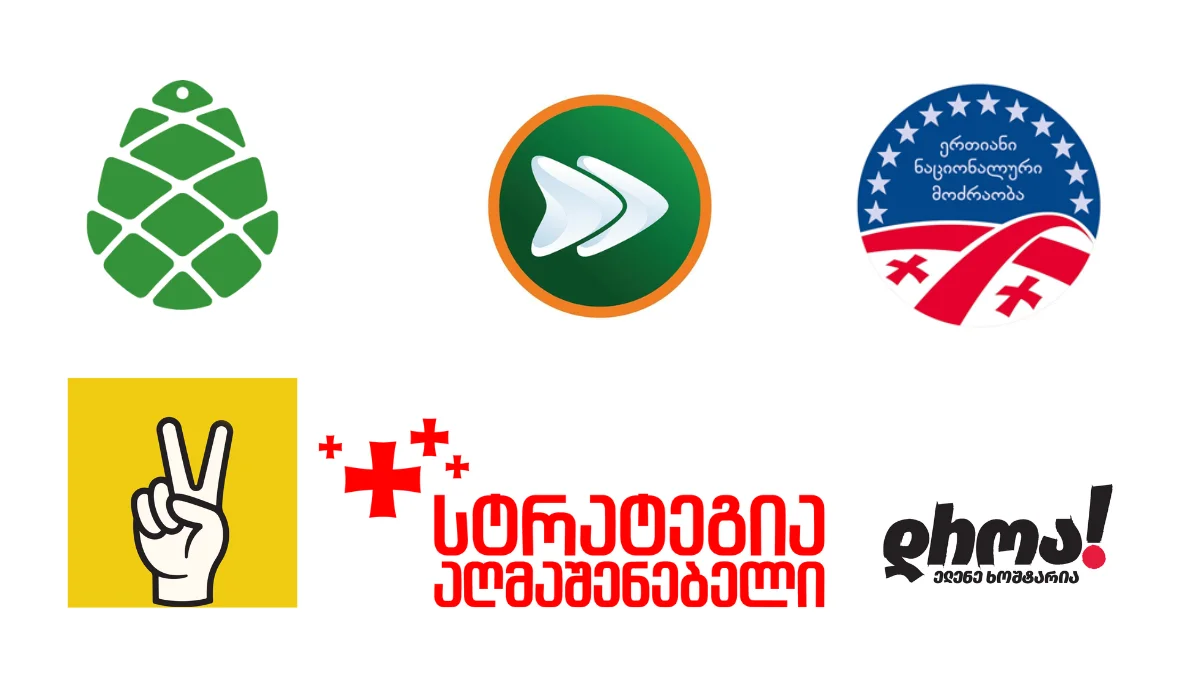
The ruling Georgian Dream party has presented a Constitutional Court appeal seeking to ban three major opposition forces – the United National Movement (UNM), Ahali/Coalition for Change, and Lelo/Strong Georgia – which crossed the 5% threshold in the disputed 2024 parliamentary elections. The ruling party also warned that smaller opposition groups could face similar action, but excluded former Prime Minister Giorgi Gakharia’s For Georgia party, whose MPs took their seats in the disputed Parliament after a yearlong boycott. We have compiled the initial reactions of opposition figures in Georgia: Tina Bokuchava, UNM Chair: “It doesn’t matter which parties Ivanishvili’s ‘kangaroo’ Constitutional Court will ban or not. A party is a union of people who fight for common goals. On the contrary, this could become a new opportunity for the country’s democratic political forces – those who truly fight against Ivanishvili’s treacherous criminal gang and for a better future for Georgia – to unite in a common resistance movement.” Irakli Kupradze, leader of Lelo/Strong Georgia: “The anti-national and anti-Georgian Georgian Dream decided to deliver a decisive blow to democracy and ban the pro-Western opposition parties, including the political coalition Lelo – Strong Georgia, which for these years has pursued the fundamental interests of Georgian citizens – to bring the people’s voice back into politics. We will continue our struggle and resistance. The Russian-style regime, which seeks to remove the pro-Western opposition voice in this country, including in the form of the Lelo – Strong Georgia coalition, poses a challenge we are determined to resist…The resistance against the Russian regime, the Georgian Dream, will be uncompromising and principled.” Mamuka Khazaradze, leader of Lelo/Strong Georgia: “You’re right to be afraid of Strong Georgia. We’ll send you away anyway.” Coalition for Change: “The regime and Ivanishvili have once again explicitly shown that they are weak and afraid of the national forces in fair elections… A political party is an instrument of democracy. Otherwise, people change governments and regimes. Nearly a million Georgian voters decided that Georgian Dream cannot represent our people and our state. Therefore, it is important to know that we will use every lever to defeat Georgian Dream so that the national forces come to power in Georgia, because Georgia, now more than ever, needs unity and must be formed into a strong state that will undoubtedly reach EU membership and restore Georgia’s real sovereignty. If anyone is taking away our sovereignty today, it is Bidzina Ivanishvili and the Russian regime.” Elene Khoshtaria, leader of Droa: “The ban on parties by this government is just as illegal as the entire illegitimate, Russian-backed regime itself. What Bidzina’s slave Papuashvili said today – his attempt to rewrite Georgia’s modern history – is a story made up by Russians, the invented history of their colony.” Giga Bokeria, leader of Federalists: “This constitutes the deprivation of citizens’ choice – not only of those who currently sympathize with the parties to be banned, but of everyone. Ivanishvili, the regime, and the government will decide for all of you citizens, regardless of your political preferences, what choices you are allowed to have. This is the direct establishment of a one-party dictatorship, and, of course, this measure, this draconian, shameful instrument, will end with the defeat of Ivanishvili’s regime.” Giorgi Sharashidze, Gakharia For Georgia: “Time will tell whether this constitutional and party-banning campaign is actually yet another ‘fake’ campaign between Georgian Dream and the United National Movement. We say this because the UNM is the main reason Georgian Dream has been in power for 13 years. Banning a political party is simply incomprehensible. Of course, it’s unconstitutional. When you want to defeat a political party, you must first defeat it through elections.”
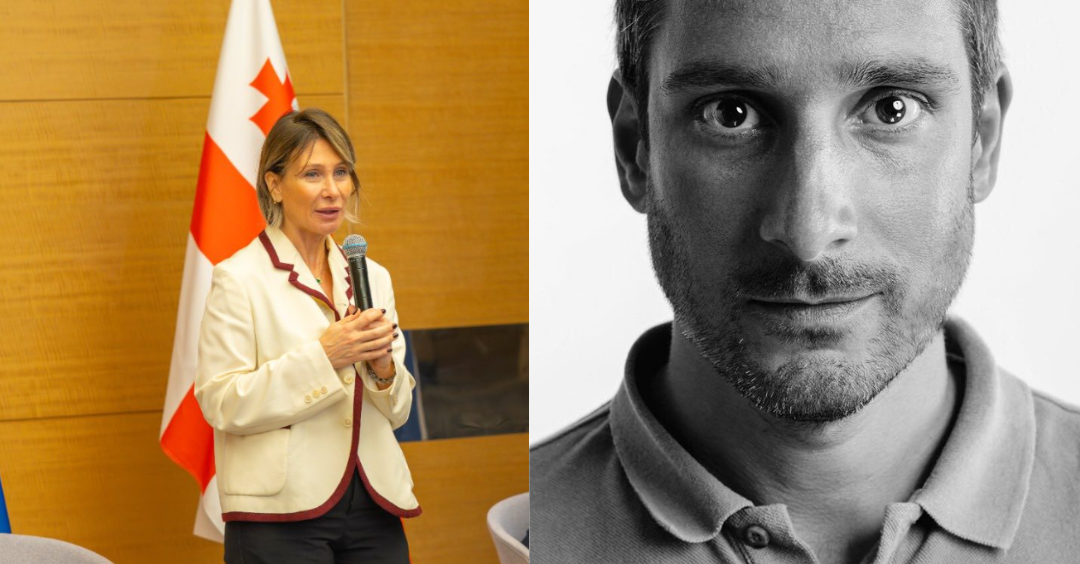
The Tbilisi City Court has ordered philosopher Levan Ghambashidze to pay GEL 10,000 (USD 3,677) to Georgian Dream MP Nino Tsilosani after ruling in the lawmaker’s favor in a defamation case stemming from Ghambashidze’s corruption allegations against her family. In May, Ghambashidze said that Tsilosani had sued him, seeking GEL 10,000 (USD 3,677) in compensation, after he alleged in a February social media post that Tsilosani’s family had stolen GEL 65 million (USD 24 million) from the state budget. Tsilosani publicly urged him to retract the statement at the time, warning that otherwise they would “meet in court.” “Levan Ghambashidze lied in the information spread against my family, which was also confirmed by the court’s decision,” Tsilosani, who is also a deputy speaker of the GD-led parliament, wrote on Facebook on October 29. “By fully satisfying my claim, the court once again reinforced the hope that no disinformation or false accusation will go unanswered.” She added that the compensation would be donated “to those who need it most,” calling the gesture a “morally right step” and urging Ghambashidze to direct his efforts toward “more noble and righteous goals.” In response, Ghambashidze wrote on Facebook that “It is a lie that the court confirmed I had lied.” According to the philosopher, “if the court confirmed anything at all, it is that it cannot make decisions independent from the Georgian Dream government.” The dispute stems from a high-profile, long-running embezzlement case involving a train-building company run by Tsilosani’s father, Badri Tsilosani, and her former husband, Vladimer Abuladze, among others. They were accused by the Finance Ministry’s Investigative Service of misappropriating GEL 65 million from Georgian Railway, a state-run enterprise, through inflated repair contracts. According to the investigation, Georgian Railway allegedly registered a price of USD 39,000 per freight wagon repair when the actual market value was around GEL 31,000, resulting in financial losses worth GEL 65 mln. The accused were released on bail in 2013. According to the Publika outlet, Tbilisi City Court acquitted all defendants in 2023, a decision later upheld by the Court of Appeals in September 2024 after a decade-long legal process. This post is also available in: ქართული
Ваша реклама здесь
728x90
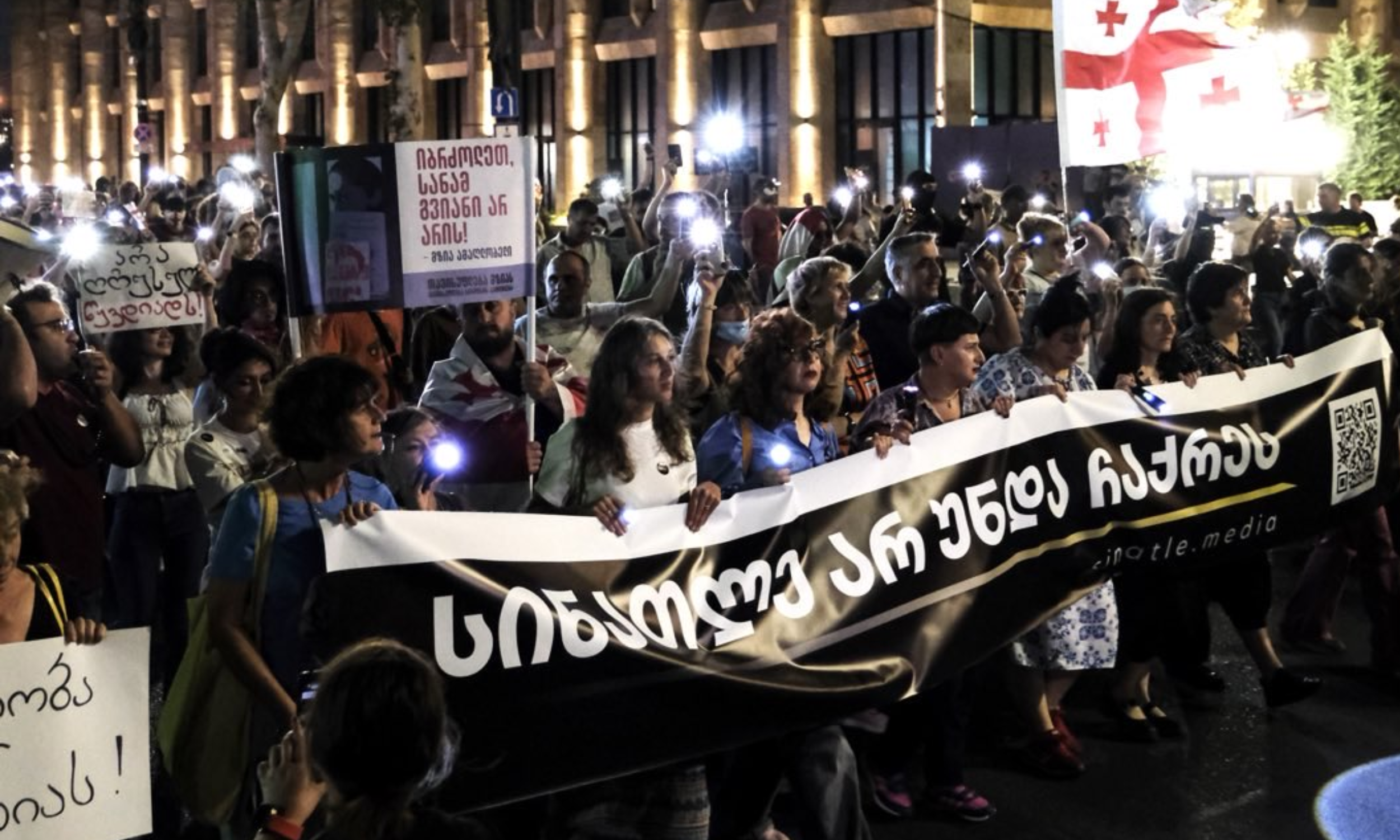
It’s noon on a Wednesday in October when, in the middle of her interview with Civil.ge, Nino Bakradze receives a letter. Bakradze is the editor-in-chief of iFact, an investigative media collective with years of experience uncovering corruption. It is not without irony that the letter addressed to her comes from the Georgian Anti-Corruption Bureau. “They’re requesting information from us under these new laws,” Bakradze says as she flips through the pages. “It’s a court decision ordering us to share information about our projects, grants, and the personal data of our staff.” The “new laws” she refers to are part of a legislative package adopted by the ruling Georgian Dream party this spring to restrict foreign funding for NGOs and media outlets. These include Georgia’s own version of the American Foreign Agents Registration Act (FARA) and amendments to the Law on Grants. The former imposes criminal liability on those who fail to register as “foreign agents” – a stigmatizing label that in Georgia, as in many other former Soviet countries, is synonymous with “spy” – while the latter requires foreign donors to obtain government approval before disbursing local grants. In recent months, dozens of NGOs and media organizations have been subjected to inspections under the new laws, while many others have been forced to scale back or suspend their activities to avoid punitive consequences. Georgian Dream officials have defended the measures as establishing a “minimum standard of transparency.” It has long been no secret that Georgian online media outlets rely heavily on foreign funding to sustain themselves. Most publish lists of their donors openly on their websites, and iFact is no exception. In the case of the multimedia platform Chai Khana, the list includes 22 different institutions, among them the European Union, the Government of the United Kingdom, and the Civil Society Foundation Georgia (formerly Open Society Georgia Foundation). When the new laws came into effect, beginning with last year’s foreign agents law, the so-called “Russian Law,” Chai Khana’s director, Lika Antadze, was suddenly faced with a difficult reality. At that point, she says, Chai Khana received roughly 90% of its funding from international donors. Under the “Russian Law,” the media outlet had to either register as a “foreign agent” or cut all ties to foreign money. Antadze chose the latter: “When the law came in, we stopped the projects.” Ninety percent of the budget is gone, yet Chai Khana has not shut down. When it comes to money, journalism, in Georgia or anywhere else, faces one central challenge: reliable, independent information rarely turns a profit. Media outlets are therefore either publicly funded, as in the case of the Georgian Public Broadcaster (GPB), or dependent on donors and businesses. Even Georgia’s most-watched, pro-government private TV stations, such as Imedi TV and Rustavi 2, are far from financially self-sufficient. According to their 2024 financial audits, both channels accumulated debts exceeding half a billion lari. Independent watchdogs say the Imedi channel is shielded from bankruptcy by companies linked to Georgian Dream founder and billionaire Bidzina Ivanishvili. Donations, whether private or public, inevitably raise questions about their potential influence on editorial independence. “It’s a valid question,” says Antadze, but she urges a closer look at how the funding process actually works. Chai Khana never received a grant and told what to do with it, she explains, it was the other way around: “We make a proposal about what we want to do, and then you find the good fit for who wants to invest in that mission and in the vision you have.” Antadze joined Chai Khana in 2017. In all that time, she says, they have never sent out content to a donor for approval. In August, 22 online media outlets launched an online campaign called “The Lights Must Stay On” to raise awareness of their dire financial situation. According to Teo, a journalist and co-founder of the campaign’s organizing platform sinatle.media, most of the outlets had lost around 90% of their budgets. Yet, as became clear in interviews for this article, many of them have continued their work. “The goal for all of us was to make it to the elections on October 4,” Teo explains. Many journalists kept working even when their outlets could no longer pay full salaries. “Journalism in Georgia has always been underpaid,” she says, “especially online journalism.” But under the current circumstances, independent reporters are more reliant than ever on financial support from their families or second jobs just to cover basic expenses. iFact’s Nino Bakradze, too, says her team has been working voluntarily since May. One of the organizations supporting outlets such as iFact and Chai Khana is the Civil Society Foundation of Georgia (CSF). Hatia Jinjikhadze has led their media support program for 15 years. Over that time, she says, online media outlets have succeeded in establishing themselves as a relevant and influential part of Georgia’s media landscape: „They do not represent a political party, they do not represent any influential group, they represent the public, and that is why their role is important, although their impact is not as big as that of the broadcasters.“ As of August, CSF is no longer able to provide grants to media organizations. The organization was among several whose accounts were frozen by authorities as part of a “sabotage” investigation, with prosecutors accusing them of supporting violent protests by providing legal aid to those detained. CSF had also donated protective gear to journalists covering anti-government demonstrations. Jinjikhadze and the organization view the criminal charges as another means of suppressing critical voices. A recent report by the International Society for Fair Elections and Democracy (ISFED) indicates that the ruling party’s scrutiny of media funding primarily targets outlets critical of the government’s policies. Meanwhile, ISFED says that media organizations publicly supportive of the ruling party have received millions of GEL from party and state sources, either through direct payments or simplified procurement processes. While staff at critical media outlets are less optimistic about quickly finding alternative funding, they try to adapt their funding models to survive. Conditions are especially dire for smaller regional media outlets. Among them is Radio Marneuli FM, a local community radio station and online platform serving Marneuli, a municipality about 70 km south of Tbilisi, home to Georgia’s ethnically Azerbaijani and Armenian communities. “Fifty percent of the people here are not Georgian-speaking,” Kamila Mamedova, director of Marneuli FM, tells Civil.ge. At Marneuli FM, local journalists from the ethnic communities produce daily news in three languages, reaching 40 villages on a regular basis. “We have two goals: to inform people who live in the region and speak minority languages […] and to tell the rest of Georgia about the Azerbaijani and Armenian communities without all the stereotypes.” The team of 12 has never had substantial financial means, Mamedova says. Like many independent media outlets, the radio’s budget is composed of multiple projects, mostly funded by international donors. Because Marneuli FM also holds a broadcasting license, it is subject to another layer of restrictive legislation: April amendments to Georgia’s broadcasting laws that prohibit TV and radio channels from receiving foreign funding. The Communications Commission (ComCom), Georgia’s state media regulator, had already issued a warning regarding a project funded by the Deutsche Welle Academy. Mamedova decided to halt the project, but is unsure how to fill the resulting budget gap. “We need to find ways of commercialising our content and work”, she says. “But we are a very specific media outlet. (…) We work for minorities, and we have our expertise, of course, about minorities.” Two of Marneuli FM’s projects are still running, but until December. The Anti-Corruption Bureau, a public body responsible for enforcing the new restrictive laws, has already launched inspections into at least four independent media organizations: the Georgian Charter of Journalistic Ethics, Realpolitika, Project 64, Mtisambebi, and iFact. According to Bakradze, iFact was first contacted in September and asked to provide information about any grants they may have received since the amendment to the Law on Grants took effect. “We replied that we have not had anything like that since April, so we could not share any information with them,” she says. One month later, Bakradze received a second letter informing her of a court order at the request of the Anti-Corruption Bureau. Noncompliance could result in imprisonment. Yet Bakradze appears determined not to be intimidated: “We’ve never been scared of sharing our information, and I’m not scared right now.” Chai Khana’s Antadze has not yet received such a letter, but she sees the risk of inspections and the burden of additional paperwork as just one piece of a larger puzzle. „It’s also the context where we operate and what’s going on on a larger scale, where we have political prisoners now, we have a media manager and a journalist in jail.“ Mzia Amaghlobeli, founder of Netgazeti and Batumelebi, two of Georgia’s major independent media outlets, is serving a two-year prison sentence after being convicted of slapping a police chief during a tense night of protests. Her trial and punishment are widely seen as a disproportionate attempt to silence and intimidate critical journalists. Lea Eichhorn is a journalist based in Hamburg, Germany. She is currently a Marion-Dönhoff-Fellow at Civil.ge.

It’s noon on a Wednesday in October when, in the middle of her interview with Civil.ge, Nino Bakradze receives a letter. Bakradze is the editor-in-chief of iFact, an investigative media collective with years of experience uncovering corruption. It is not without irony that the letter addressed to her comes from the Georgian Anti-Corruption Bureau. “They’re requesting information from us under these new laws,” Bakradze says as she flips through the pages. “It’s a court decision ordering us to share information about our projects, grants, and the personal data of our staff.” The “new laws” she refers to are part of a legislative package adopted by the ruling Georgian Dream party this spring to restrict foreign funding for NGOs and media outlets. These include Georgia’s own version of the American Foreign Agents Registration Act (FARA) and amendments to the Law on Grants. The former imposes criminal liability on those who fail to register as “foreign agents” – a stigmatizing label that in Georgia, as in many other former Soviet countries, is synonymous with “spy” – while the latter requires foreign donors to obtain government approval before disbursing local grants. In recent months, dozens of NGOs and media organizations have been subjected to inspections under the new laws, while many others have been forced to scale back or suspend their activities to avoid punitive consequences. Georgian Dream officials have defended the measures as establishing a “minimum standard of transparency.” It has long been no secret that Georgian online media outlets rely heavily on foreign funding to sustain themselves. Most publish lists of their donors openly on their websites, and iFact is no exception. In the case of the multimedia platform Chai Khana, the list includes 22 different institutions, among them the European Union, the Government of the United Kingdom, and the Civil Society Foundation Georgia (formerly Open Society Georgia Foundation). When the new laws came into effect, beginning with last year’s foreign agents law, the so-called “Russian Law,” Chai Khana’s director, Lika Antadze, was suddenly faced with a difficult reality. At that point, she says, Chai Khana received roughly 90% of its funding from international donors. Under the “Russian Law,” the media outlet had to either register as a “foreign agent” or cut all ties to foreign money. Antadze chose the latter: “When the law came in, we stopped the projects.” Ninety percent of the budget is gone, yet Chai Khana has not shut down. When it comes to money, journalism, in Georgia or anywhere else, faces one central challenge: reliable, independent information rarely turns a profit. Media outlets are therefore either publicly funded, as in the case of the Georgian Public Broadcaster (GPB), or dependent on donors and businesses. Even Georgia’s most-watched, pro-government private TV stations, such as Imedi TV and Rustavi 2, are far from financially self-sufficient. According to their 2024 financial audits, both channels accumulated debts exceeding half a billion lari. Independent watchdogs say the Imedi channel is shielded from bankruptcy by companies linked to Georgian Dream founder and billionaire Bidzina Ivanishvili. Donations, whether private or public, inevitably raise questions about their potential influence on editorial independence. “It’s a valid question,” says Antadze, but she urges a closer look at how the funding process actually works. Chai Khana never received a grant and told what to do with it, she explains, it was the other way around: “We make a proposal about what we want to do, and then you find the good fit for who wants to invest in that mission and in the vision you have.” Antadze joined Chai Khana in 2017. In all that time, she says, they have never sent out content to a donor for approval. In August, 22 online media outlets launched an online campaign called “The Lights Must Stay On” to raise awareness of their dire financial situation. According to Teo, a journalist and co-founder of the campaign’s organizing platform sinatle.media, most of the outlets had lost around 90% of their budgets. Yet, as became clear in interviews for this article, many of them have continued their work. “The goal for all of us was to make it to the elections on October 4,” Teo explains. Many journalists kept working even when their outlets could no longer pay full salaries. “Journalism in Georgia has always been underpaid,” she says, “especially online journalism.” But under the current circumstances, independent reporters are more reliant than ever on financial support from their families or second jobs just to cover basic expenses. iFact’s Nino Bakradze, too, says her team has been working voluntarily since May. One of the organizations supporting outlets such as iFact and Chai Khana is the Civil Society Foundation of Georgia (CSF). Hatia Jinjikhadze has led their media support program for 15 years. Over that time, she says, online media outlets have succeeded in establishing themselves as a relevant and influential part of Georgia’s media landscape: „They do not represent a political party, they do not represent any influential group, they represent the public, and that is why their role is important, although their impact is not as big as that of the broadcasters.“ As of August, CSF is no longer able to provide grants to media organizations. The organization was among several whose accounts were frozen by authorities as part of a “sabotage” investigation, with prosecutors accusing them of supporting violent protests by providing legal aid to those detained. CSF had also donated protective gear to journalists covering anti-government demonstrations. Jinjikhadze and the organization view the criminal charges as another means of suppressing critical voices. A recent report by the International Society for Fair Elections and Democracy (ISFED) indicates that the ruling party’s scrutiny of media funding primarily targets outlets critical of the government’s policies. Meanwhile, ISFED says that media organizations publicly supportive of the ruling party have received millions of GEL from party and state sources, either through direct payments or simplified procurement processes. While staff at critical media outlets are less optimistic about quickly finding alternative funding, they try to adapt their funding models to survive. Conditions are especially dire for smaller regional media outlets. Among them is Radio Marneuli FM, a local community radio station and online platform serving Marneuli, a municipality about 70 km south of Tbilisi, home to Georgia’s ethnically Azerbaijani and Armenian communities. “Fifty percent of the people here are not Georgian-speaking,” Kamila Mamedova, director of Marneuli FM, tells Civil.ge. At Marneuli FM, local journalists from the ethnic communities produce daily news in three languages, reaching 40 villages on a regular basis. “We have two goals: to inform people who live in the region and speak minority languages […] and to tell the rest of Georgia about the Azerbaijani and Armenian communities without all the stereotypes.” The team of 12 has never had substantial financial means, Mamedova says. Like many independent media outlets, the radio’s budget is composed of multiple projects, mostly funded by international donors. Because Marneuli FM also holds a broadcasting license, it is subject to another layer of restrictive legislation: April amendments to Georgia’s broadcasting laws that prohibit TV and radio channels from receiving foreign funding. The Communications Commission (ComCom), Georgia’s state media regulator, had already issued a warning regarding a project funded by the Deutsche Welle Academy. Mamedova decided to halt the project, but is unsure how to fill the resulting budget gap. “We need to find ways of commercialising our content and work”, she says. “But we are a very specific media outlet. (…) We work for minorities, and we have our expertise, of course, about minorities.” Two of Marneuli FM’s projects are still running, but until December. The Anti-Corruption Bureau, a public body responsible for enforcing the new restrictive laws, has already launched inspections into at least four independent media organizations: the Georgian Charter of Journalistic Ethics, Realpolitika, Project 64, Mtisambebi, and iFact. According to Bakradze, iFact was first contacted in September and asked to provide information about any grants they may have received since the amendment to the Law on Grants took effect. “We replied that we have not had anything like that since April, so we could not share any information with them,” she says. One month later, Bakradze received a second letter informing her of a court order at the request of the Anti-Corruption Bureau. Noncompliance could result in imprisonment. Yet Bakradze appears determined not to be intimidated: “We’ve never been scared of sharing our information, and I’m not scared right now.” Chai Khana’s Antadze has not yet received such a letter, but she sees the risk of inspections and the burden of additional paperwork as just one piece of a larger puzzle. „It’s also the context where we operate and what’s going on on a larger scale, where we have political prisoners now, we have a media manager and a journalist in jail.“ Mzia Amaghlobeli, founder of Netgazeti and Batumelebi, two of Georgia’s major independent media outlets, is serving a two-year prison sentence after being convicted of slapping a police chief during a tense night of protests. Her trial and punishment are widely seen as a disproportionate attempt to silence and intimidate critical journalists. Lea Eichhorn is a journalist based in Hamburg, Germany. She is currently a Marion-Dönhoff-Fellow at Civil.ge.

